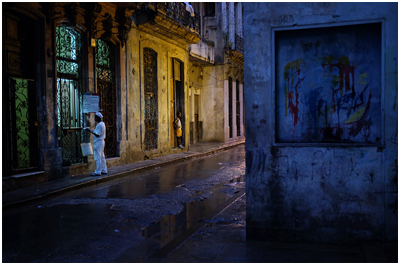Choosing a Camera

There is no perfect camera. Get that idea out of your head right now. Every camera is a compromise. Size, speed, image quality, low-light performance, price, etc., can be features or liabilities.
As you start to rank your priorities, the universe of appropriate cameras will narrow itself for you:
• If you value best-possible image quality above all, sell your car/house/kidney and buy a digital medium format camera. Or go back to film and shoot large format.
• If you need long/fast glass and/or very high speed (sports, nature, etc.) that'll send you towards Nikon, Canon or (lately) Sony and a super-telephoto lens.
• If you shoot portraits, speed and high ISO performance might not matter as much as gorgeous color.
• If you travel frequently, you'll likely put a premium on your cameras being small and lightweight, with good low-light performance.
• If you are following a toddler around the living room, continuous autofocus performance may trump price. (Or maybe you're just feeding your ego. That toddler will slow down in a few years and maybe the money is better spent on jumpstarting their college fund than on a flagship DSLR.)
So first, think about your priorities and your budget, then begin your search for cameras using that as a compass point.
And nowhere is it written that you have to buy brand new gear. If I were just starting out I'd strongly consider a late-model used digital camera and a used lens or two. If I was not happy, it would be a cheap marriage to unwind. Within a year I could probably sell the lot on eBay for a $100 less than I paid, or maybe break even.
Another idea: buy used from a shutterbug friend who is upgrading, knowing the camera implicitly comes with some informal tutoring. (And a good outlet to borrow/lend lenses, bodies, etc.)
The good news is, most any system-oriented digital camera made in the last few years is probably sufficient for the needs of most photographers. Digital cameras have gotten to be fantastic lately.
My Decision Tree

I spent over 30 years with Nikon film and digital SLRs as my primary cameras. But the further I got away from shooting for newspapers (which at the time had included lots of sports and breaking news photography) the more my priorities shifted. Here is what is important to me now:
• small and unobtrusive (I don't want to look/feel like light infantry)
• great image quality
• great in low light (when the quality of light is often way better)
• whisper quiet
That led me to move to mirrorless cameras a few years back — specifically, Fuji's X-series. In the last six years, I have accumulated a core group of lenses (some new, some used) and periodically upcycled my cameras as funds permitted.
Pictured at top are the cameras that currently get more use than anything else I have (save maybe my iPhone): a Fuji X Pro-2 and a Fuji X100F. I chose them because they produce better color than anything I have ever owned. They are small, lightweight, dead quiet and thrive in low light.
If your priorities are different, they might lead you to a different set of choices.
PSSSST:
Here's a largely unspoken truth in the hype-soaked atmosphere of digital cameras today: they have gotten to a point where the near-monthly improvements are mostly Nth-degree stuff and one-upsmanship. As a result, people tend to churn their cameras frequently.
But because of that, a late-model used camera can be a good deal. And the model before that can be a great deal.
Whether you buy new or used, embrace this concept of impermanence. If you shoot a lot you probably won't be using the same camera in five years that you are today.
Whatever camera style/brand (new or used) you are considering, you can use the 'net to easily scope out how other photographers are using it and what kind of image quality it has. This is especially true when wading into the universe of used cameras.
Shocker: you'll find that people were making really good photos a few years ago with gear that, three years later, is surprisingly affordable.
New or used, keep a level head and an eye on the big picture. Resist the hype. Focus on how you will be using the camera and what features are truly most important to you. Then let that drive a more rational choice for your needs.
Back to Gear Guide Main Page
__________
New to Strobist? Start here | Or jump right to Lighting 101
Got a question? Hit me on Twitter: @Strobist
Have a passport? Join me in Hanoi: X-Peditions Location Workshops
Permalink

<< Home